Iba Lab B1 Syllabus (2023 Spring - English version) Natural & Creative Living Lab: Studies on Creative Practice for Supporting Natural and Creative Living
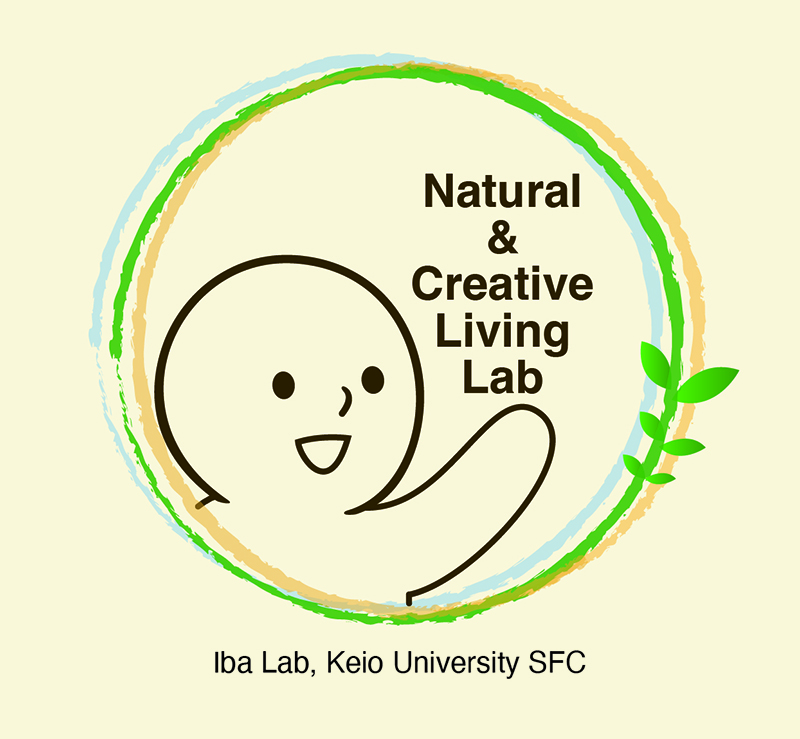 Iba Lab B1 Syllabus (2023 Spring - English version)
Iba Lab B1 Syllabus (2023 Spring - English version) Natural & Creative Living Lab: Studies on Creative Practice for Supporting Natural and Creative Living
Important Information
Iba Lab B2 Syllabus
From the Spring semester of 2023, Iba Lab will be offered as two Type-B research group, “Kenkyukai,” that will be linked together. Therefore, please read both this B1 syllabus and the B2 syllabus “Natural & Creative Living Lab: Practicing Research Project” to understand the entire picture.
Newcomer Entry Deadline: January 29 (Sun), 23:59
Following the entry, an interview will be held on February 3 (Fri.) in person at the campus.
Iba Lab Information Session: January 19 (Thurs), 6th Period (e11 classroom)
Those who are considering entering the Iba Lab are encouraged to attend as much as possible. In addition to an overview of Iba Lab, there will be time to talk with current lab members.
2022 Fall-Semester Presentation Day: January 28 (Sat), in person on campus t11 classroom)
The 2022 Fall-Semester Presentation Day will provide a better understanding of what we are doing and the projects we are working on at the Iba Lab, so please attend. This conference will be held in Japanese.
Spring special research projects: February and March
During the spring break period in February and March, we will conduct a special research project (Type-B, 2 credits) entitled “Philosophy and Methodology of Pattern Language: A Comprehensive Study.” We recommend that you take this special project, as it is an opportunity to learn about pattern language in a holistic and concrete manner. This special project will be held in Japanese. For more information, please read the syllabus of the Special Research Project (http://web.sfc.keio.ac.jp/~iba/sb/log/eid610.html).
5-minute video that provides an idea of the atmosphere of the Iba Lab
“This is what days of the Iba Lab, which studies ‘Natural & Creative Living,’ look like!”
https://www.youtube.com/watch?v=jQKgVGrUvS8
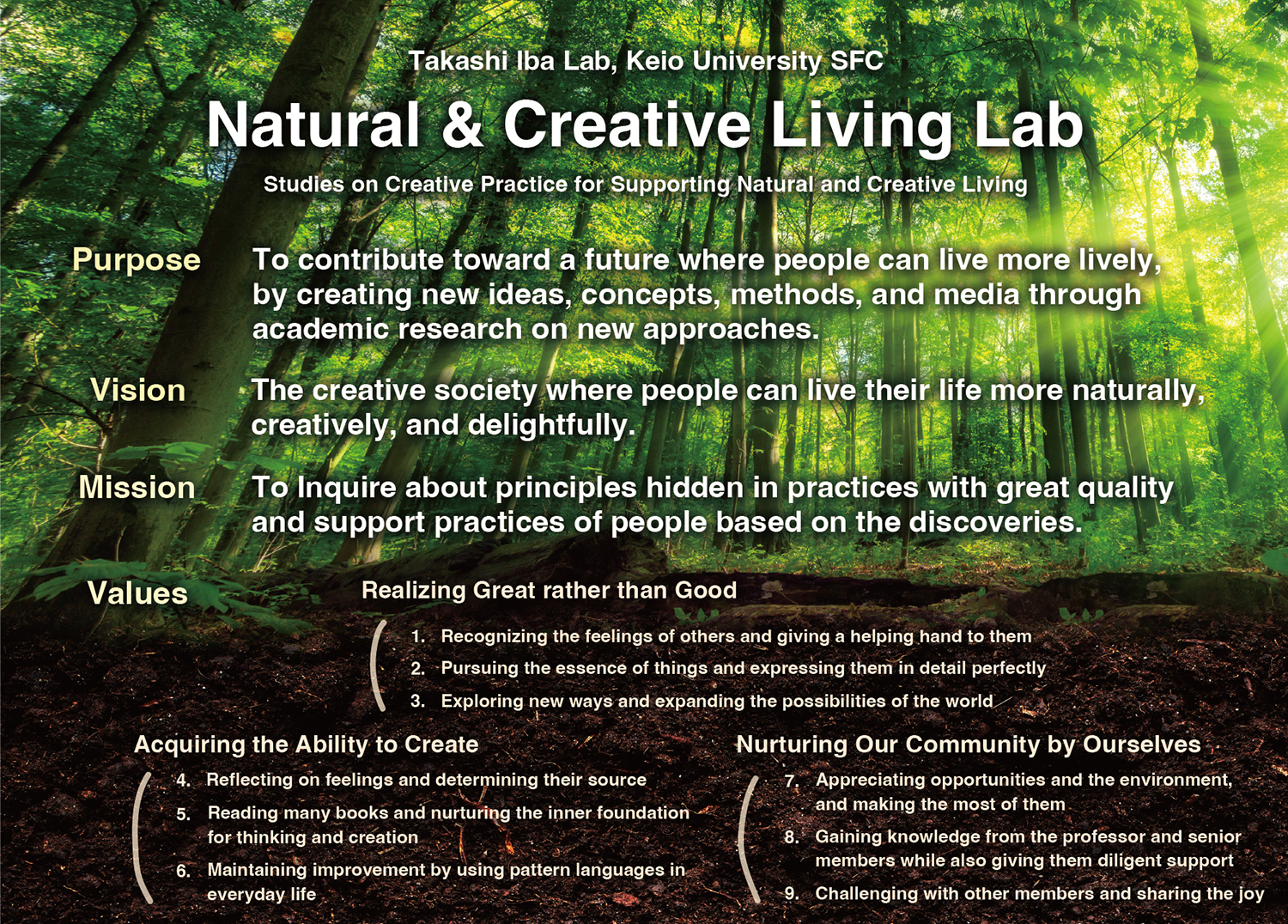
Purpose - To contribute toward a future where people can live more lively, by creating new ideas, concepts, methods, and media through academic research on new approaches
The purpose of Iba Lab is “To contribute toward a future where people can live more lively, by creating new ideas, concepts, methods, and media through academic research on new approaches.” We conduct academic research using new ideas that are unrestricted by the boundaries of existing academic disciplines or common sense. In addition, we develop new ideas, concepts, methods, and media that will solve current problems and improve the future. We will work with diverse actors to disseminate the results of our research and contribute to the realization of a future in which people can live more lively.
Vision - The creative society where people can live their life more naturally, creatively, and delightfully
The vision of Iba Lab is “The creative society where people can live their life more naturally, creatively, and delightfully.”
Prof. Iba has been advocating that the changes over the past 100 years should be viewed in terms of a “Consumer Society,” an “Information Society,” and a “creative society.” In the consumer society, people considered the purchase and enjoyment of goods and services, such as home appliances, and cars, to be essential to the richness of their lives. With the advent of the information society, the center of gravity of interest has shifted to communication, and good communication and relationships now symbolize the “richness” of life and living. Furthermore, in a creative society (partially underway today), people are creating their own things, ideas, methods, systems, societies, and ways of being and living, and the degree to which they are involved in “creating” for themselves is considered to be the “richness” of their lives and livelihoods.
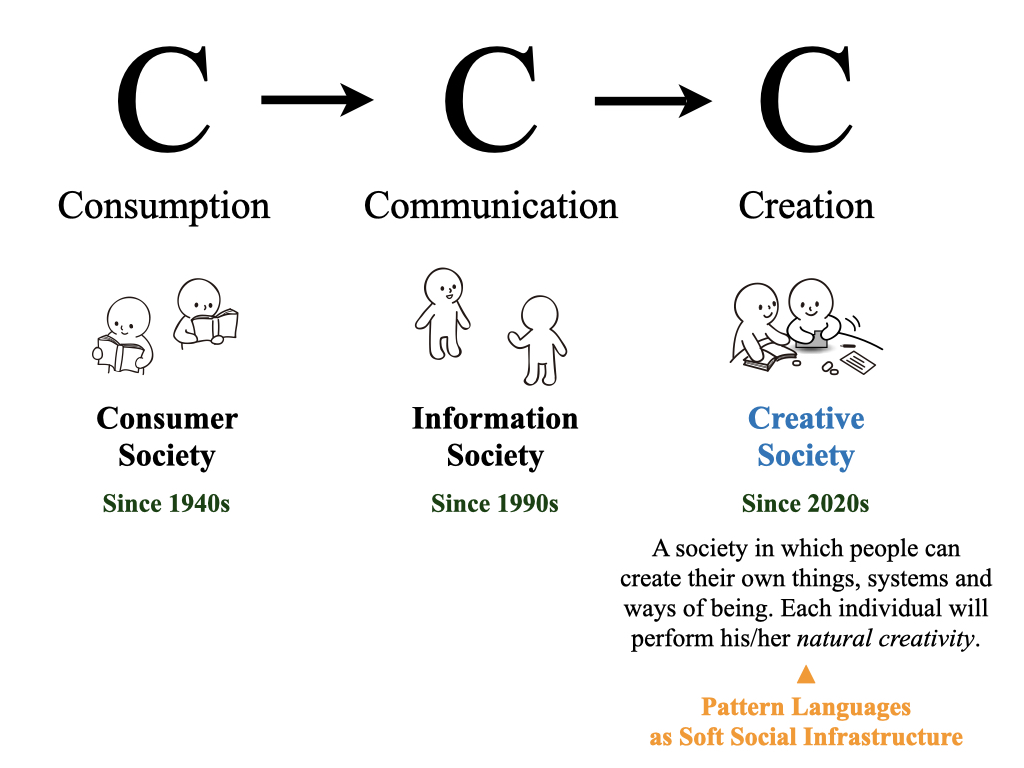
Prof. Iba proposes the era of “creation” to be a future where people live more in harmony with nature and each person lives naturally like a human being, rather than within an artificial future encumbered by technology. At the Iba Lab, we aim for such a future of “Natural and Creative Living,” and are engaged in practical academic research to support the realization of a life that is a combination of “Natural,” “Creative,” and “Delightful.”
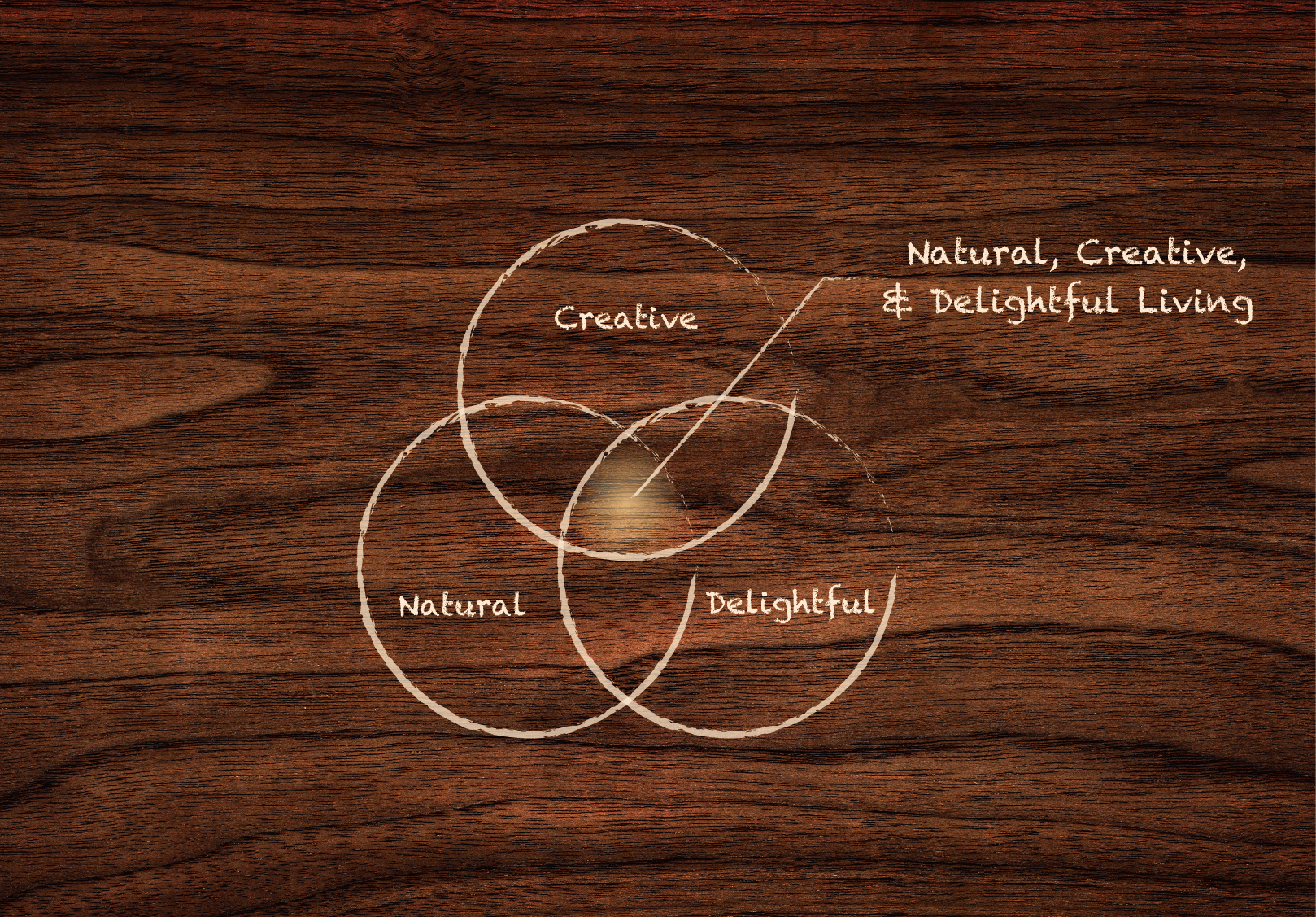
Mission - To Inquire about principles hidden in practices with great quality and support practices of people based on the discoveries
The Mission of Iba Lab is “To Inquire about principles hidden in practices with great quality and support practices of people based on the discoveries.”
How can we achieve “living naturally and creatively”? We must consider each area of practice in our daily lives and social activities. Therefore, the Iba Lab is engaged in academic research to clarify the reality of “Natural and Creative Living” in each practice, such as learning, work, child-rearing, caregiving, and life planning, and expressing it in the form of “pattern language” for supporting people who want to practice it.
Pattern Language verbalizes the “Kotsu,” which stands for “knack” and “rules of thumb” in Japanese, in practice. The word “Kotsu” is etymologically written as “bone” in Chinese characters. Therefore, “Kotsu” as bone is like an axis that supports the practice from the inside. Pattern Language verbalizes the following types of “Kotsu.”
1. Fundamental “Kata” (pattern) of the practice
2. The ways of those who have been exceptionally successful (“Positive Deviance”)
3. “Good Practices” which someone obtained by invention or through trial and error
If we share these “Kotsu” (patterns), we can help those who are currently having trouble in practice and those who would like to improve their practice. However, we do not mean directly helping each person in the field. We deliver a pattern language that verbalizes the “Kotsu” (patterns) and helps people learn to do them on their own.
By sharing a medium that works from within the person, it becomes possible to transcend the “supporting person/supported person” relationship. It is extremely difficult to create a pattern language that actually functions in this way; however, that is why we at the Iba Lab strive to create it thoroughly.
By creating pattern languages in various fields of practice by ourselves and also supporting those who create their pattern language, we attempt to realize the future in which pattern language supports people’s practice in every possible field. Pattern language developed in this way will become a “soft social infrastructure” in the creative society. People will have more freedom to start creative practices based on the support of such “soft social infrastructure.” This is what we will do in our practical academic research at the Iba Lab.
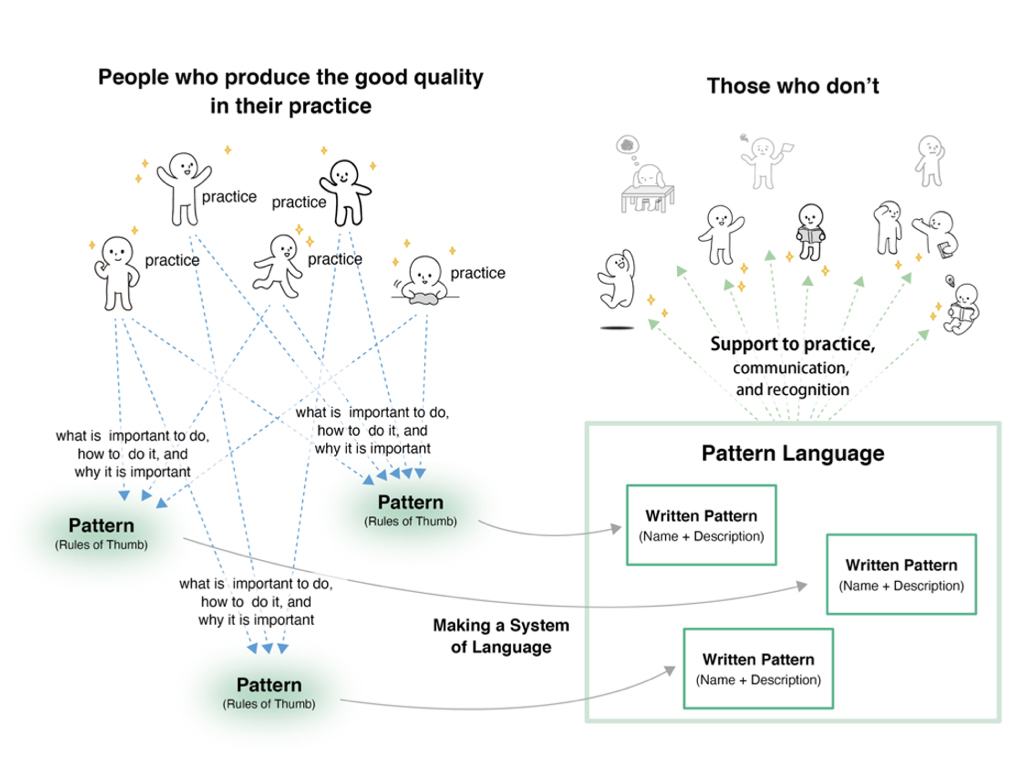
The following are some of the papers presenting the pattern languages created by us, Iba Lab. Please read them.
- Iba, T. and Utsunomiya, Y., “Active Learning Patterns for Teachers,” Sickinger, R., Baumgartner, P., Gruber-Mücke, T. (eds.), Pursuit of Pattern Languages for Societal Change: A Comprehensive Perspective of Current Pattern Research and Practice, Krems: Edition Donau-Universität Krems, 2018
- Hayashi, K., Shibata, S., Inoue, E., Adachi, S., Iba, T. "Online Education Patterns, Part 1: Patterns for Linking Separate Worlds", EuroPLoP'21: 26th European Conference on Pattern Languages of Programs, 2021 *You can download the PDF file of this paper freely when you access from the campus or via VPN.
- Iba, T., Kaneko, T., Kamada, A., Tamaki, N., Okada, M, “Words for a Journey: A Pattern Language for Living Well with Dementia” in World Conference on Pursuit of Pattern Languages for Societal Change, 2015, published in a book: Baumgartner, P., Gruber-Muecke, T., Sickinger, R. (Eds.), Pursuit of Pattern Languages for Societal Change. Designing Lively Scenarios in Various Fields. Berlin: epubli, 2016
- Ogo, I., Iba, T., Ito, K., and Miyakawa, S., "Ways of Everyday World-Making: Living well with Working and Parenting," Sickinger, R., Baumgartner, P., Gruber-Mücke, T. (eds.), Pursuit of Pattern Languages for Societal Change: A Comprehensive Perspective of Current Pattern Research and Practice, Krems: Edition Donau-Universität Krems, 2018
- Iba, T. and Kubo, T., "Life Transition Patterns: A Pattern Language for Shaping Your Future," Sickinger, R., Baumgartner, P., Gruber-Mücke, T. (eds.), Pursuit of Pattern Languages for Societal Change: A Comprehensive Perspective of Current Pattern Research and Practice, Krems: Edition Donau-Universität Krems, 2018
At Iba Lab, we are predominantly engaged in creating pattern language as a way to support creative practice; however, we also conduct research on creating workshops, new methods and tools, and creative communities.
Values - Realizing Great rather than Good / Acquiring the Ability to Create / Nurturing Our Community by Ourselves
The values of Iba Lab is as follows:
- Realizing Great rather than Good
1. Recognizing the feelings of others and giving a helping hand to them
2. Pursuing the essence of things and expressing them in detail perfectly
3. Exploring new ways and expanding the possibilities of the world
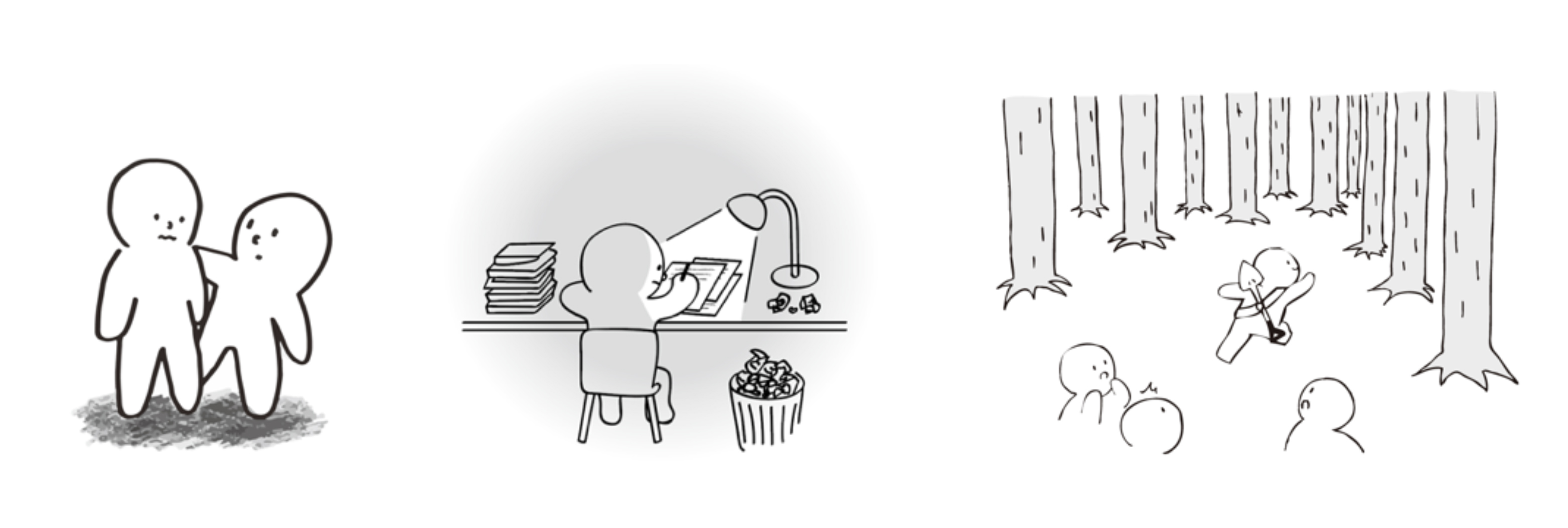
- Acquiring the Ability to Create
4. Reflecting on feelings and determining their source
5. Reading many books and nurturing the inner foundation for thinking and creation
6. Maintaining improvement by using pattern languages in everyday life

- Nurturing Our Community by Ourselves
7. Appreciating opportunities and the environment, and making the most of them
8. Gaining knowledge from the professor and senior members while also giving them diligent support
9. Challenging with other members and sharing the joy.

Practical research in the new academic field of “Studies on Creative Practice”
The research we are working on at the Iba Lab does not fit into any existing academic discipline. Therefore, I have named it “Studies on Creative Practice.” It is a new discipline that studies the practice of creation and creative practice.
The mainstay method of Studies on Creative Practice is pattern language. We study great practices in each of these areas and verbalize it. Subsequently, we use it to help people. Therefore, Studies on Creative Practice are practical studies that solve current problems and issues. However, creating pattern language is also a future-oriented activity, as it builds the “soft social infrastructure” of the future society.
At Iba Lab, we encourage students to enter a master course to “master” the philosophy and methods of Studies on Creative Practice, or a doctoral (Ph. D.) course to become “doctors who heal society” in their respective fields of interest and develop their advanced skills and minds.
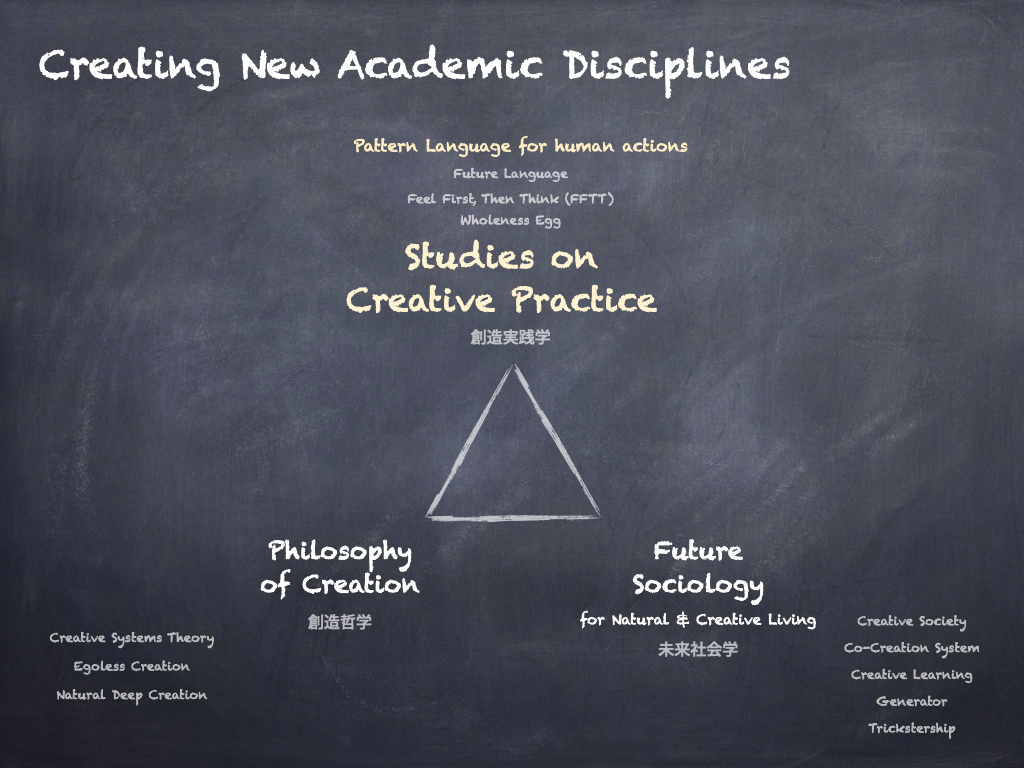
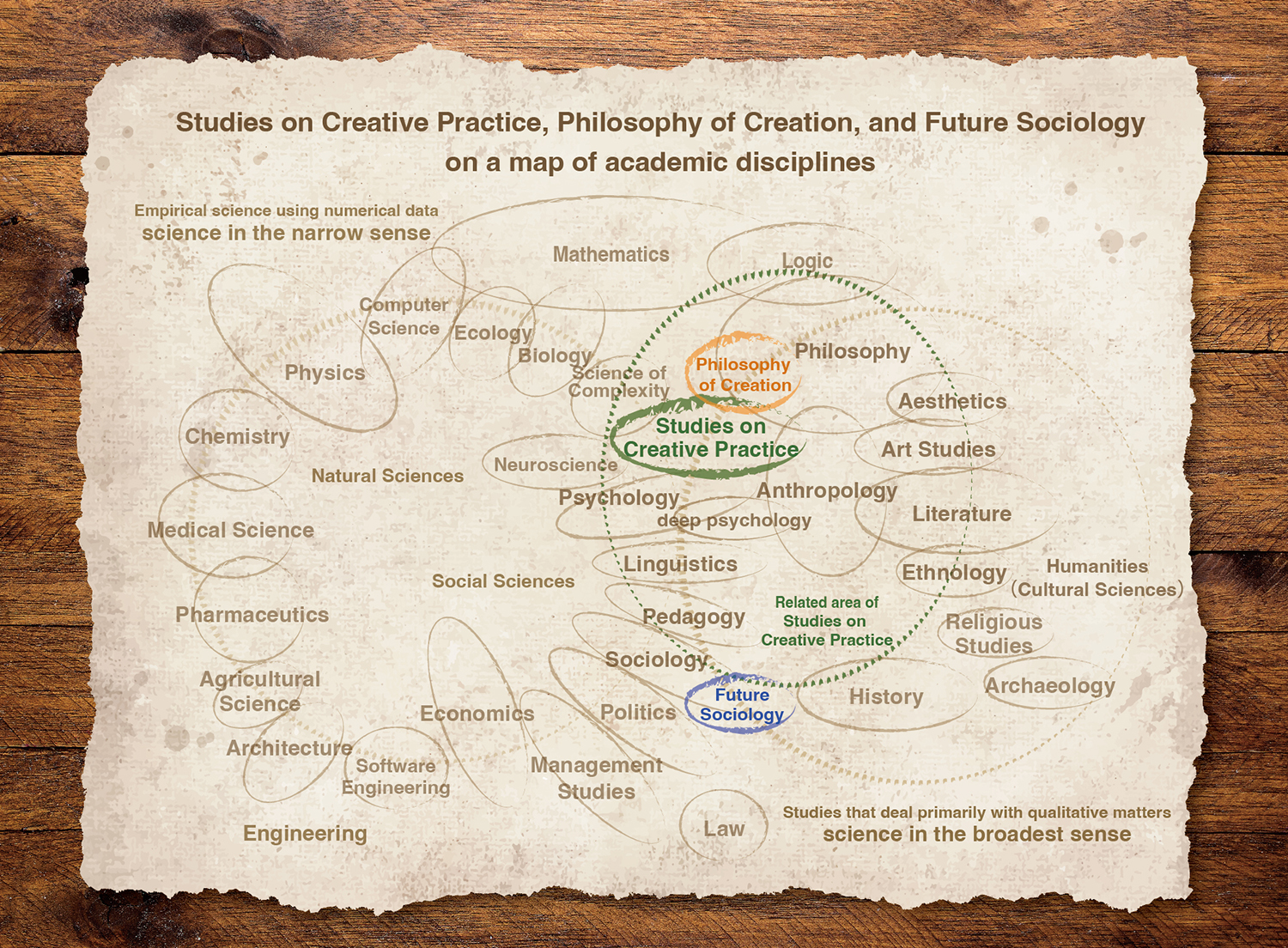
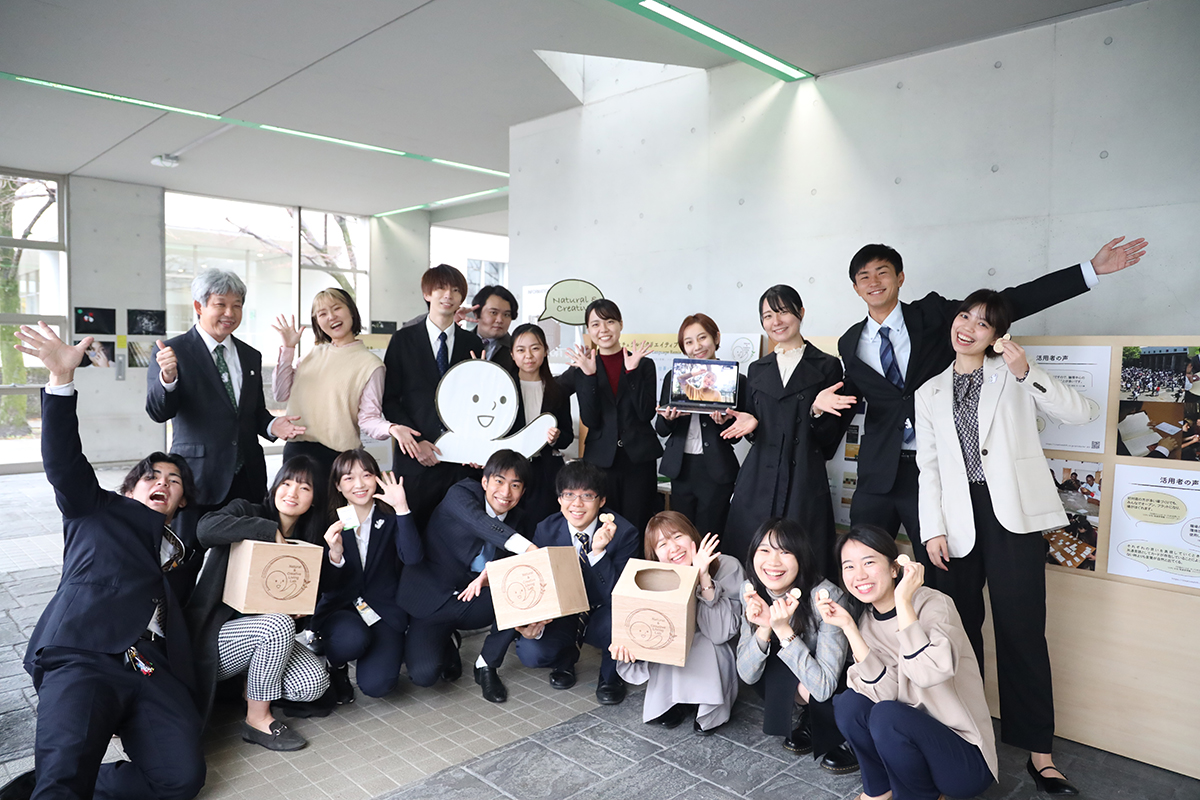
Overall structure of Iba Lab in 2023
From the Spring semester of 2023, Iba Lab will be offered as two Type-B “Kenkyukai” (research group) that will be linked together.
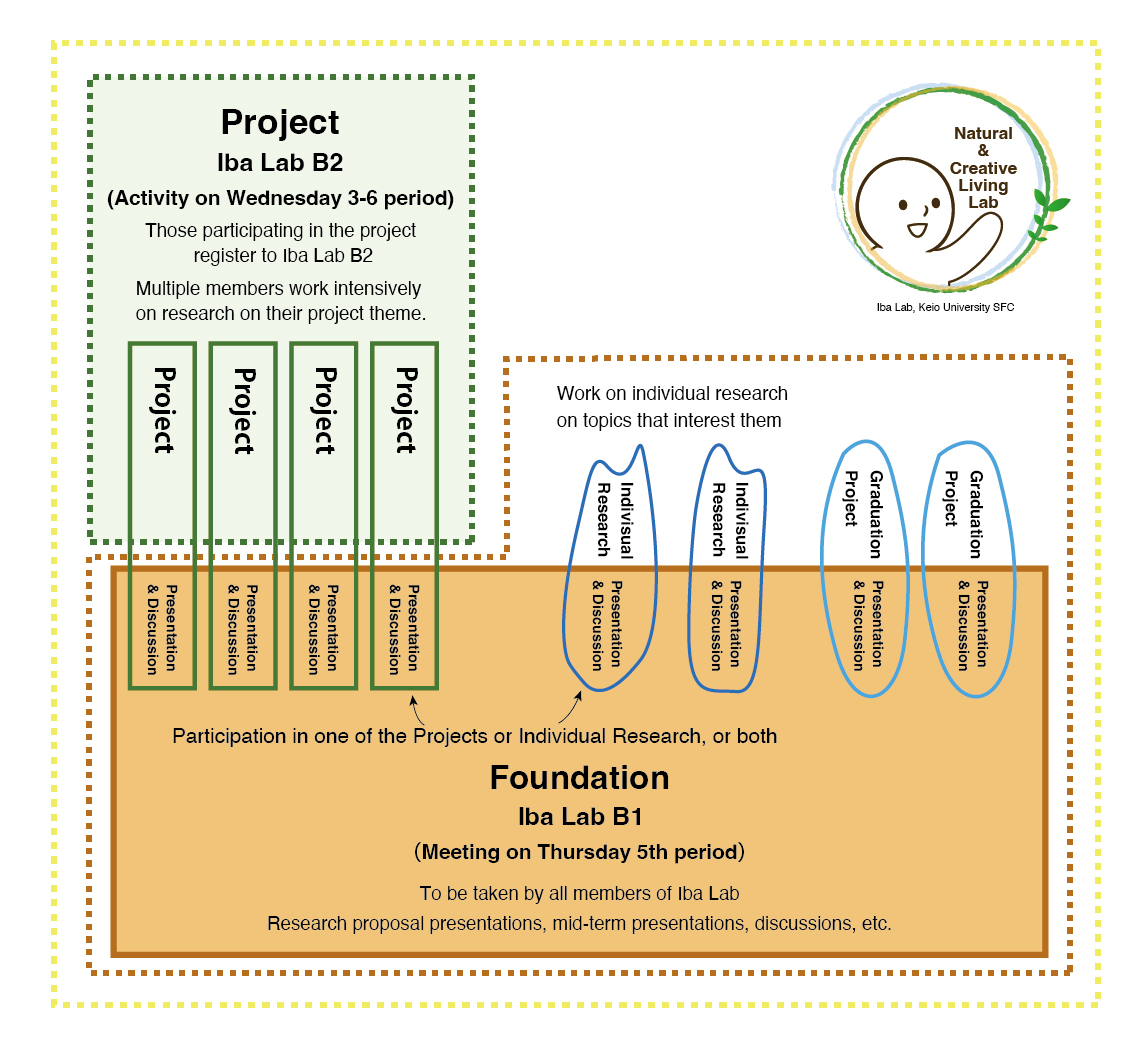
Iba Lab B1 is the Foundation for all Iba Lab members. It will be held on Thursdays 5th period (extended if necessary). This is a meeting where seminars on methods and thoughts and discussions for organizing the lab are held. In addition, each student will present, and discuss their ongoing research.
Members will either participate in one of the Projects or conduct Individual Research during the semester. It is possible to undertake both Project and Individual Research.
In the Project, experienced members serve as leaders, teaching research methods, and knowledge, while several people work on research on the theme set forth in the project. All students who participate in the project will meet on Wednesday afternoons (3rd–6th period) to ensure that they have enough time to work on the project (Wednesday project activities will be conducted as Iba Lab B2, so please be sure to enter Iba Lab B2 as well; On the official timetable, Iba Lab B2 is displayed as Wednesday 6th period).
In contrast, in Individual Research, each student is responsible for their own research theme and methods based on their own interest. Although this provides a high degree of freedom, it also means that they must be able to independently study, think, and establish the research as their own. Therefore, if you do not have experience with projects at Iba Lab or research experience at other research groups, it will be difficult for you to make it due to the difficult nature of academic research.
New members are strongly encouraged to join a project first. This is because, rather than suddenly undertaking Individual Research alone, joining a project will teach you how to conduct research and how to undertake it specifically, and you can learn from each other, stimulate each other, and share your joys in the activities. Please read the lineup of projects in the Iba Lab B2 syllabus and try to find a project that matches your interests.
Similar to Individual Research, the fourth-year students’ graduation project is also presented and discussed during the Iba Lab B1 meeting.
Advice
Class Schedule
#1 Introduction
Members will introduce themselves and dialog with members on our Purpose、Vision、Mission、Values.
#2 Method Seminar -1 (on Academic Research)
Members will discuss the way of academic research based on the assigned books.
#3 Presentations of Research Proposal - 1
Members will present their research proposals and discuss for improvement.
#4 Presentations of Research Proposal - 2
Members will present their research proposals and discuss for improvement.
#5 Perspective Seminar on Natural & Creative Living - 1
Members will discuss based on the assigned book about natural and creative living.
#6 Mid-Term Presentations of Research - 1
Members will present their research progresses and discuss for improvement.
#7 Mid-Term Presentations of Research - 2
Members will present their research progresses and discuss for improvement.
#8 Method Seminar - 2 (on Introduction to Academic Writing)
Members will discuss the way of academic writing based on the assigned books.
#9 Method Seminar - 3 (with Academic Writing Patterns)
Members will share experience with using Academic Writing Patterns for further improvement of their papers.
#10 Perspective Seminar on Natural & Creative Living - 2
Members will discuss based on the assigned book about natural and creative living.
#11 Method Seminar - 4 (on completion in Academic Writing)
Members will discuss the way of completion in academic writing based on the assigned books.
#12 Consultation Meeting on Research and Paper
Consultation meeting on research and paper will be conducted.
#13 Writers' Workshop - 1
Members will discuss their papers for further improvement in the style of writers' workshop.
#14 Writers' Workshop - 2
Members will discuss their papers for further improvement in the style of writers' workshop.
#15 Final Presentations
Members will present their research results and answer questions on them.
Assignments, Examination & Grade Evaluation
Grading will be based on student’s effort in the research and activities, presentations, final paper, contribution to discussions, and his/her growth through learning.
How to enter to Iba Lab B1 and B2
[Newcomer Entry]
New entrants to Iba Lab should read this syllabus carefully and submit [1] Entry Sheet, and [2] Reading Assignment in separate PDF files by the due date (be sure to include your name in the file name). New members are strongly encouraged to join a Project; however, if you are already in another research group/have previous research experience, etc., and are capable of and wish to conduct Individual Research, please also submit a [3] Research Proposal.
New Entry Deadline: January 29th, 23:59
Submit new entry proposals to: https://forms.gle/USWcXaC824tH2jPy5
Interviews are scheduled to be conducted in person on campus on February 3rd (Fri).
[1] Entry Sheet
Iba Lab Entry (2023 Spring)
1. Name, Faculty, Grade, Student ID, e-mail address, and Profile photo
2. Self-introduction (interests, club activities, any other selling points)
3. Reason for your entry into Iba Lab, and what strongly attracted, sympathized, or resonated with you when reading this syllabus, and why or what you thought of it.
4. Register: “Only B1” or “B1 and B2”
5. Project(s) in which you would like to participate (if numerous, please specify priority). If you want to conduct Individual Research from your first semester, please write the title of the research.
6. Skills (graphic design, film editing, programming, music, etc. Also, your level of listening, speaking, reading, and writing in Japanese)
7. Courses by Prof. Iba which you have previously taken (if any)
8. Favorite classes you have taken so far (Multiple answers are welcome) and Labs (Kenkyukai) you have been a part of (if any)
9. Other Labs (Kenkyukai) you are planning on joining next semester (if any)
10. Supplemental (if you have any other consultation)
[2] Reading Assignment
If you can easily read Japanese books, check the Japanese version of this syllabus in which there is information about the books in Japanese for this reading assignment. If not, please read the following papers that are related to research at the Iba Lab, and write about what you found interesting and why (about 1–3 pages in A4 size).
- Iba, T., “Pattern Language 3.0 and Fundamental Behavioral Properties” in World Conference on Pursuit of Pattern Languages for Societal Change, 2015, published in a book: Peter Baumgartner, Tina Gruber-Muecke, Richard Sickinger (Eds.), Pursuit of Pattern Languages for Societal Change. Designing Lively Scenarios in Various Fields. Berlin: epubli, 2016, pp.200-233
- Iba, T. “Pattern Languages as Media for Creative Dialogue: Functional Analysis of Dialogue Workshops,” Peter Baumgartner, Richard Sickinger (eds), PURPLSOC: The Workshop 2014, pp.212-231, 2015
- Iba, T., Burgoyne, A., Yoshikawa, A., Niwai, F., Kimura, N., and Watanabe, Y., "Life with Reading: A Pattern Language for Creative Reading," HILLSIDE Proceedings of Conference on Pattern Language of Programs 25, 2018
- Iba, T. "Support for Living Better throughout the COVID-19 Situation using Pattern Languages: An Attempt at Pattern Language Remix in an Emergency", HILLSIDE Proc. of Conf. on Pattern Lang. of Prog. 27, 2020
[3] Research proposal (only if you want to conduct Individual Research from your first semester)
Please write a research proposal (approximately 2–5 pages in A4) on how you will conduct research on any topic as an Individual Research. Please include the following items:
Title of the research
A subject, often with subtitle, that simply, and symbolically describes the research
Abstract
Summarizes the essence of the research in a few lines
Research Background
Including the importance of the research, history of the research, and personal context to the research
Research Method
How you will conduct the research
Schedule for Execution
Steps of research and what you plan to do and in what month
Expected Results
What you expect as the results and their academic significance and social value
References
A list of books and articles that you think are related to the research
Since interviews for entering to Iba. Lab will be conducted by both the professor and the current members together, the members will also read your submissions at thetime of entry. We would like to inform you of this in advance.
References
The followings are important books for Iba Lab researches. Note that there are more Japanese books in the Japanese-version syllabus.
- Christopher Alexander, The Timeless Way of Building, Oxford University Press, 1979
- Christopher Alexander, Sara Ishikawa, and Murray Silverstein, A Pattern Language: Towns, Buildings, Construction, Oxford University Press, 1977
- Christopher Alexander, The Nature of Order, BOOK ONE: The Phenomenon of Life, The Center for Environmental Structure, 2002
- Christopher Alexander with Howard Davis, Julio Martinez, Don Corner, The Production of Houses, Oxford University Press, 1985
- Christopher Alexander, Murray Silverstein, Shlomo Angel, Sara Ishikawa, Denny Abrams, The Oregon Experiment, Oxford University Press, 1975
- Mary Lynn Manns, Linda Rising, Fearless Change: Patterns for Introducing New Ideas, Addison-Wesley, 2004
- Vygotsky, L.S. (2004) “Imagination and Creativity in Childhood,” Journal of Russian and East European Psychology, vol.42, no.1, January–February 2004, pp.7–97
- Haruki Murakami, Novelist as a Vocation, Knopf,2022
- Stephen King, On Writing: A Memoir of the Craft, Scribner, 2000
- Hayao Miyazaki, Starting Point: 1979-1996, VIZ Media, 2006
- Walter J. Ong, Orality and Literacy, 2nd Edition, Routledge, 2002
- Mason Currey, Daily Rituals: How Great Minds Make Time, Find Inspiration, and Get to Work, Picador, 2020
- Simon Baron-Cohen, The Pattern Seekers: How Autism Drives Human Invention, Basic Books, 2023
- Fumio Sasaki, Hello, Habits: A Minimalist's Guide to a Better Life, W W Norton & Co Inc, 2021
- Keith Sawyer, Group Genius: The Creative Power of Collaboration, 2nd edition, Basic Books, 2017
- Carolyn and Jack Fleming, Thinking Places: Where Great Ideas Were Born, Trafford, 2008
- John Dewey, Experience And Education, Free Press, Reprint, 1997
- Edward S. Reed, The Necessity of Experience, Yale University Press, 1996
- Daniel H. Pink, A Whole New Mind: Why Right-Brainers Will Rule the Future, Riverhead Books, Reprint, Updated, 2006
- Roberto Verganti, Overcrowded: Designing Meaningful Products in a World Awash with Ideas, The MIT Press, 2017
- Niklas Luhmann, Social Systems, Stanford University Press, 1996
- Niklas Luhmann, Ecological Communication, University Of Chicago Press, 1989
- H. R. Maturana, F. J. Varela, Autopoiesis and Cognition: The Realization of the Living, Springer, 1980
- John Dewey, Democracy and Education, SMK Books, 2018
- Edmund Husserl, Experience and Judgement: Investigations in a Genealogy of Logic, revised and edited by Ludwig Landgrebe, Northwestern University Press, 1973
- Richard Shusterman, Practicing Philosophy: Pragmatism and the Philosophical Life, Routledge, 1997
- John Dewey, The Middle Works of John Dewey 1899 - 1924: Human Nature and Conduct 1922 (14) (Collected Works of John Dewey), Southern Illinois University Press, 2008
- Thomas S. Kuhn, The Structure of Scientific Revolutions, 50th Anniversary Edition, University of Chicago Press, 4th edition, 2012
- Immanuel Wallerstein ed, Open the Social Sciences: Report of the Gulbenkian Commission on the Restructuring of the Social Sciences, Stanford University Press, 1996
- Toshihiko Izutsu, The Structure of Oriental Philosophy: Collected Papers of the Eranos Conference, vol. I & II, Keio University Press, 2008
- Barbara Minto, The Pyramid Principle: Logic in Writing and Thinking, third edition, Pearson Education Limited, 2021
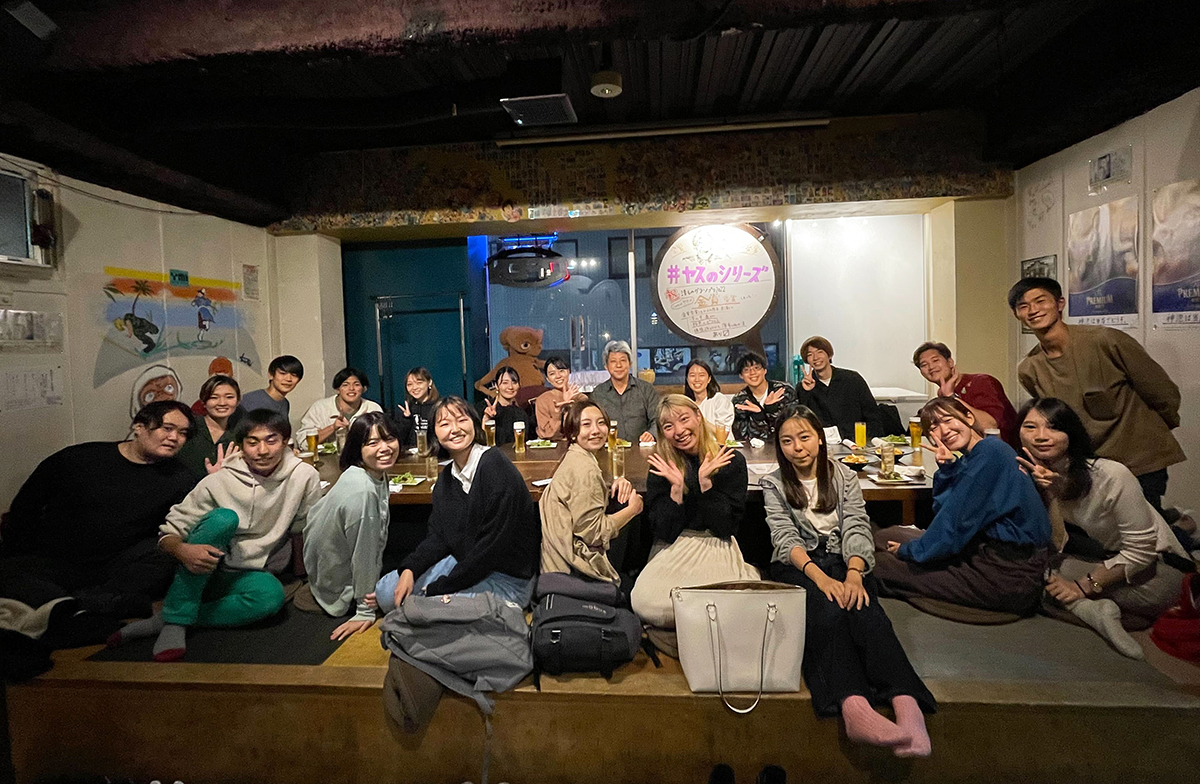
Link to :B2 Syllabus "Natural & Creative Living Lab: Practicing Research Project"
井庭研だより | - | -